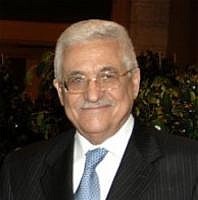Palestinian Authority President Mahmoud Abbas must have winced when he heard Hamas' reaction to the killing of Osama bin Laden. For years the PA has worked to clean up its image, from that of the fatigue-clad, pistol-packing Yasser Arafat to one of a mainstream, diplomatically palatable would-be country ready to join the international community. But just days after Abbas' Fatah reached a reconciliation agreement with its rival Hamas, Ismail Haniyeh, Hamas' top man in Gaza, praised bin Laden as a "martyr" and an "Arab holy warrior." Making matters worse, Haniyeh condemned the United States for killing the head of al-Qaida just when Washington is in the process of deciding how to react to the new Fatah-Hamas reconciliation agreement and the unity government that is expected to follow.
The Hamas statement, jarring to Western ears, captures the essence of the identity crisis that will plague the Palestinian leadership once the two former rivals try to implement their new agreement. It showed the vast chasm in values, strategies and tactics that separates the top PA officials, mostly Fatah men, from the leaders of the militant Islamist party Hamas.
In contrast to Hamas' condemnation of the U.S. and praise for bin Laden, the PA's Ghassan Khatib expressed an official view filled with the soothing, conciliatory tones that have helped the PA nurture its relations with the West. "Getting rid of bin Laden," he declared, "is good for the cause of peace worldwide."

